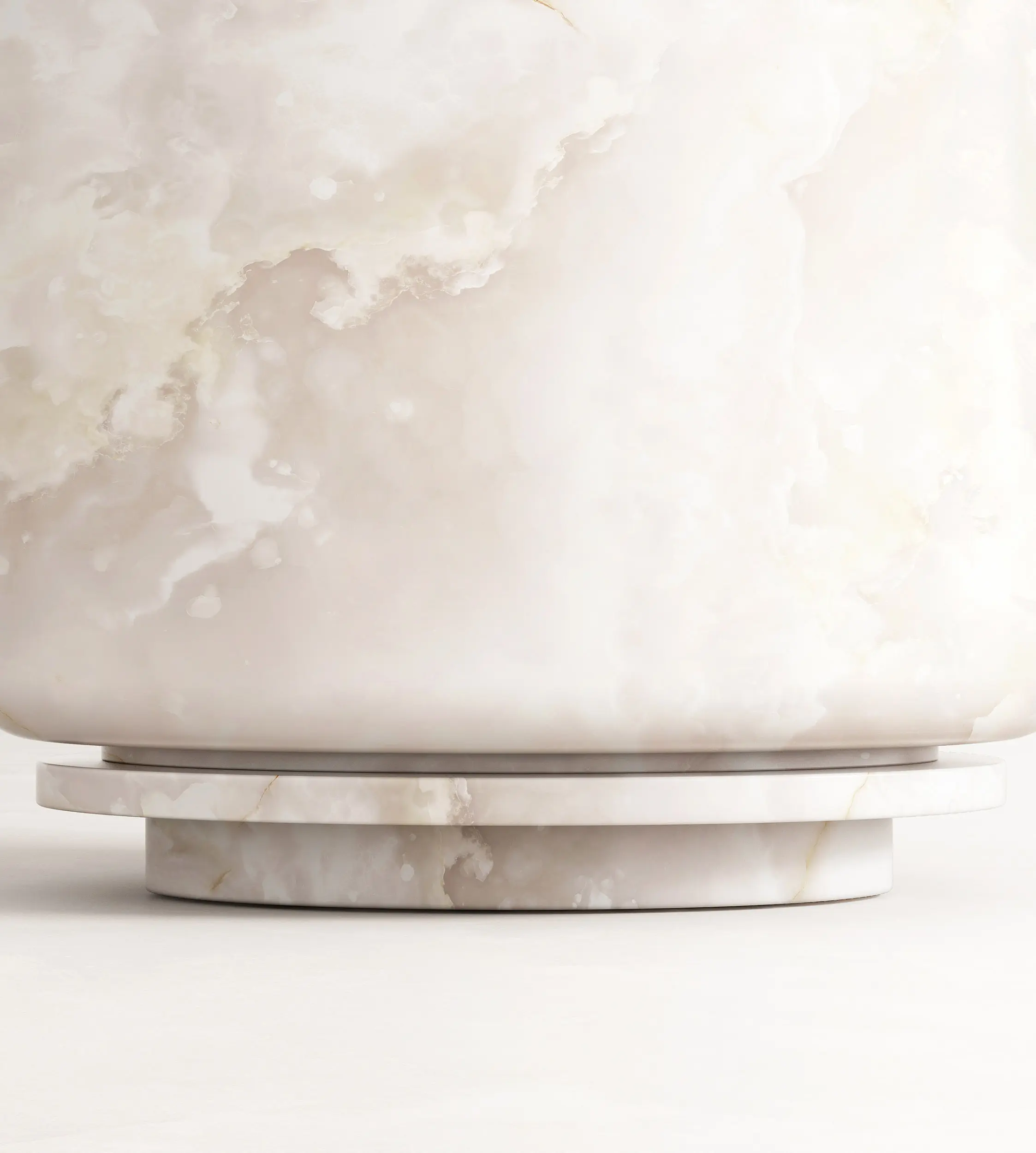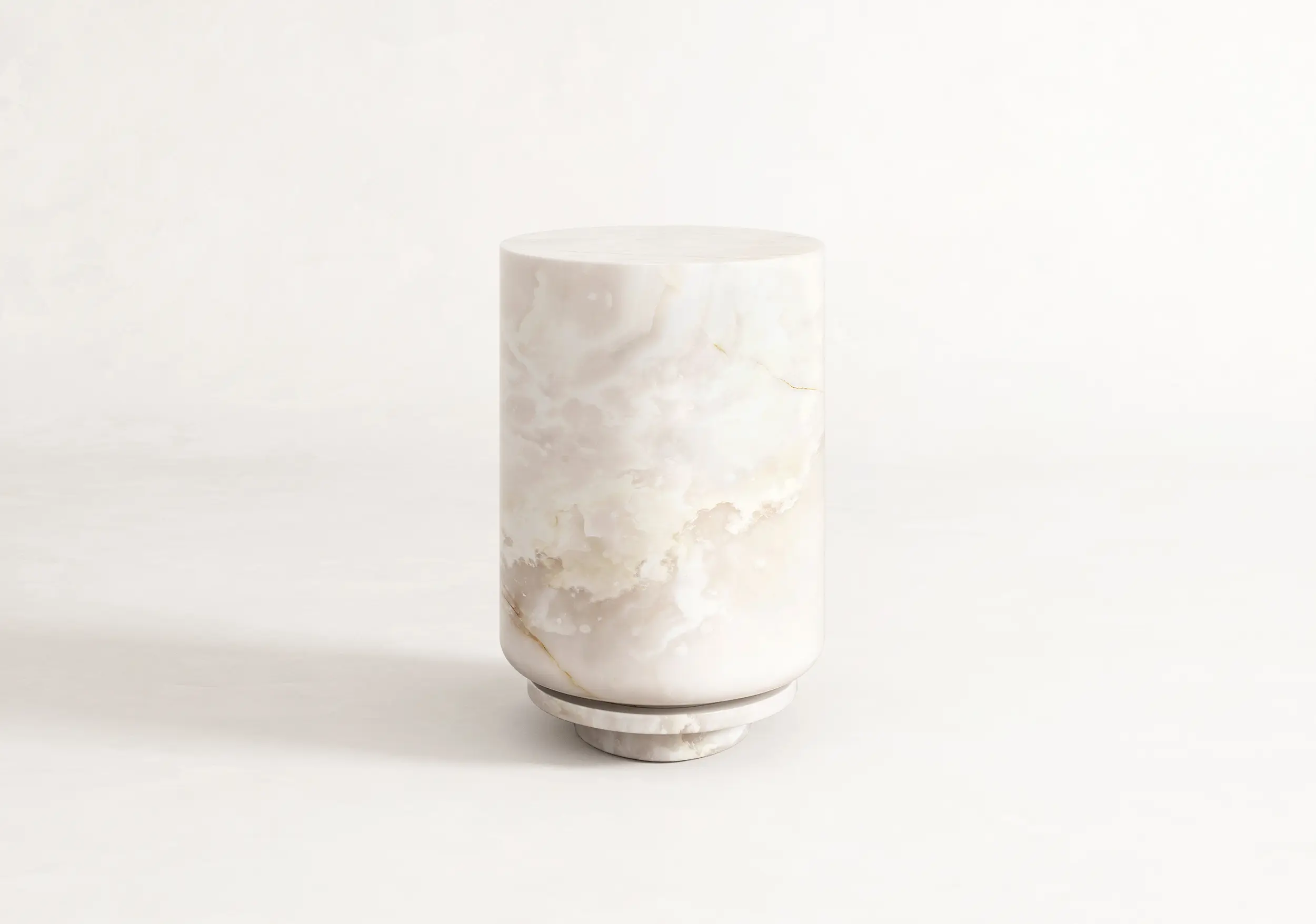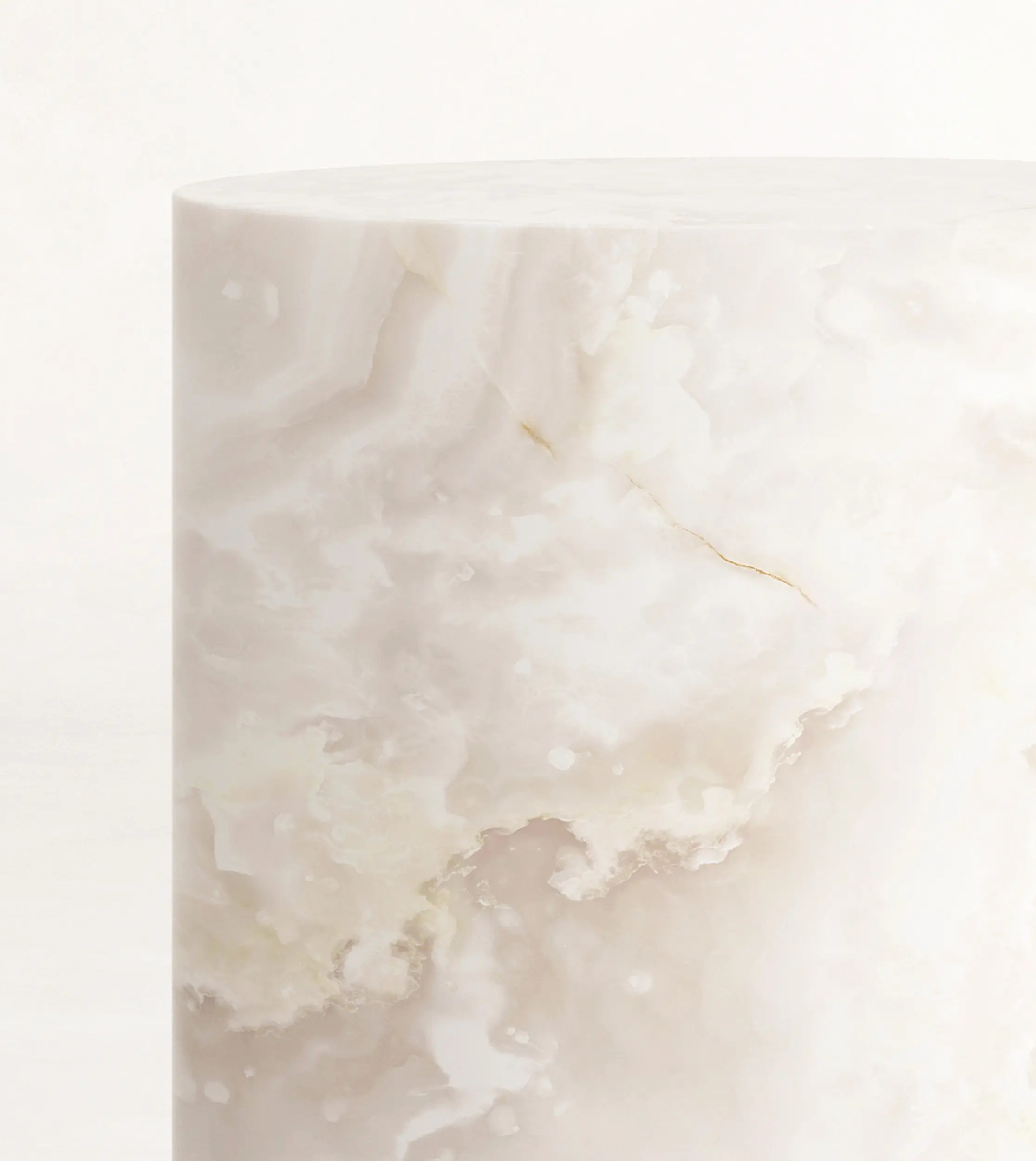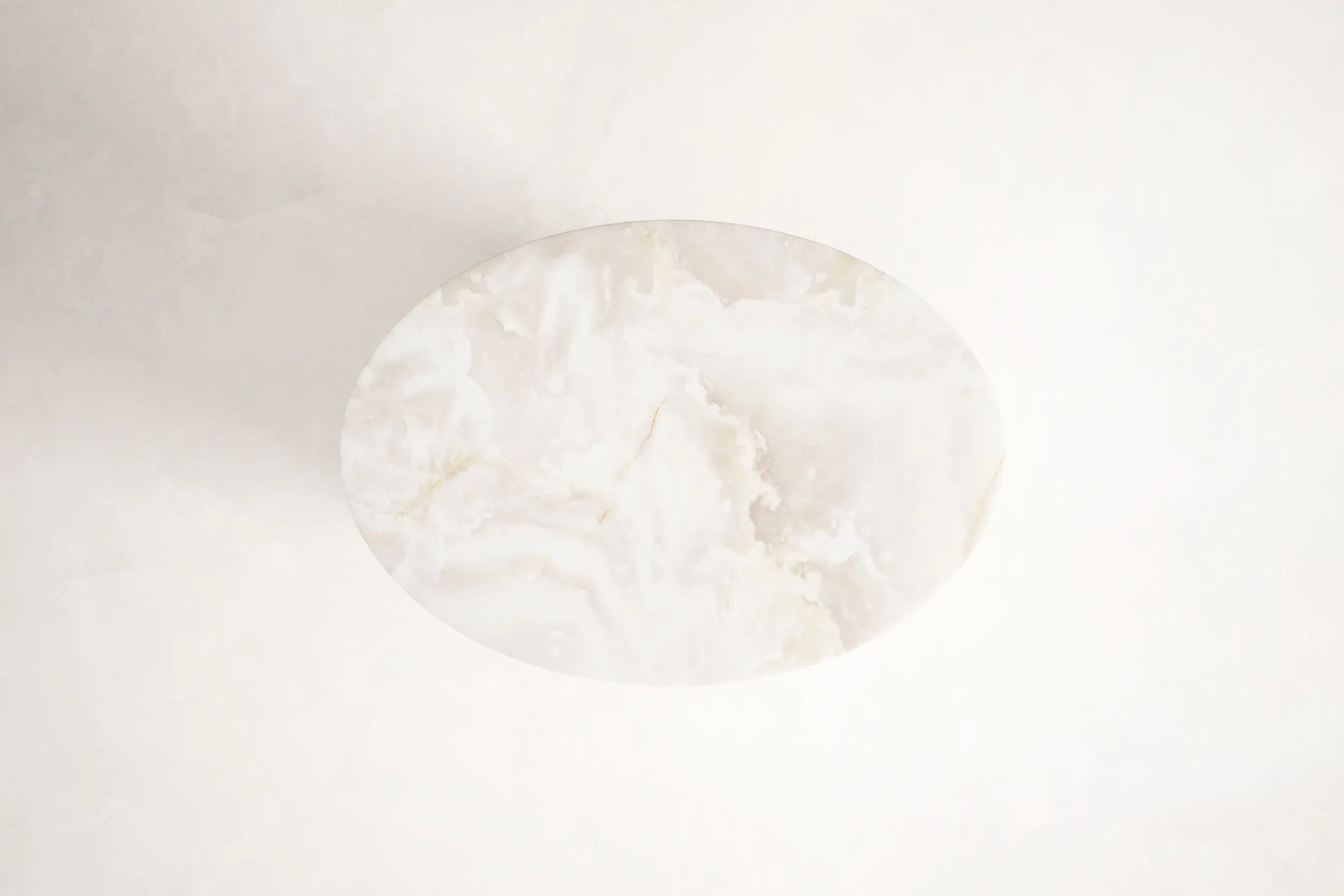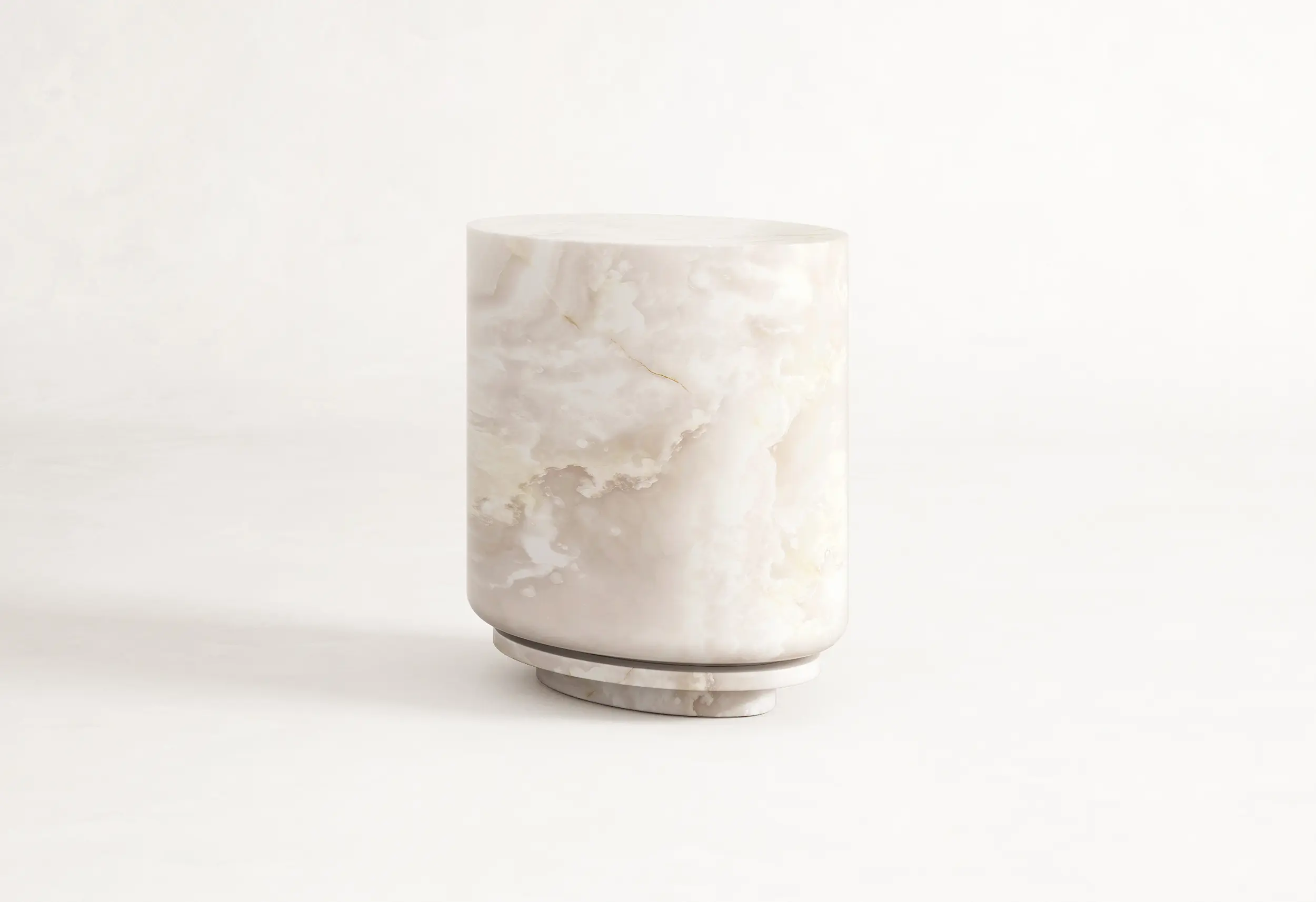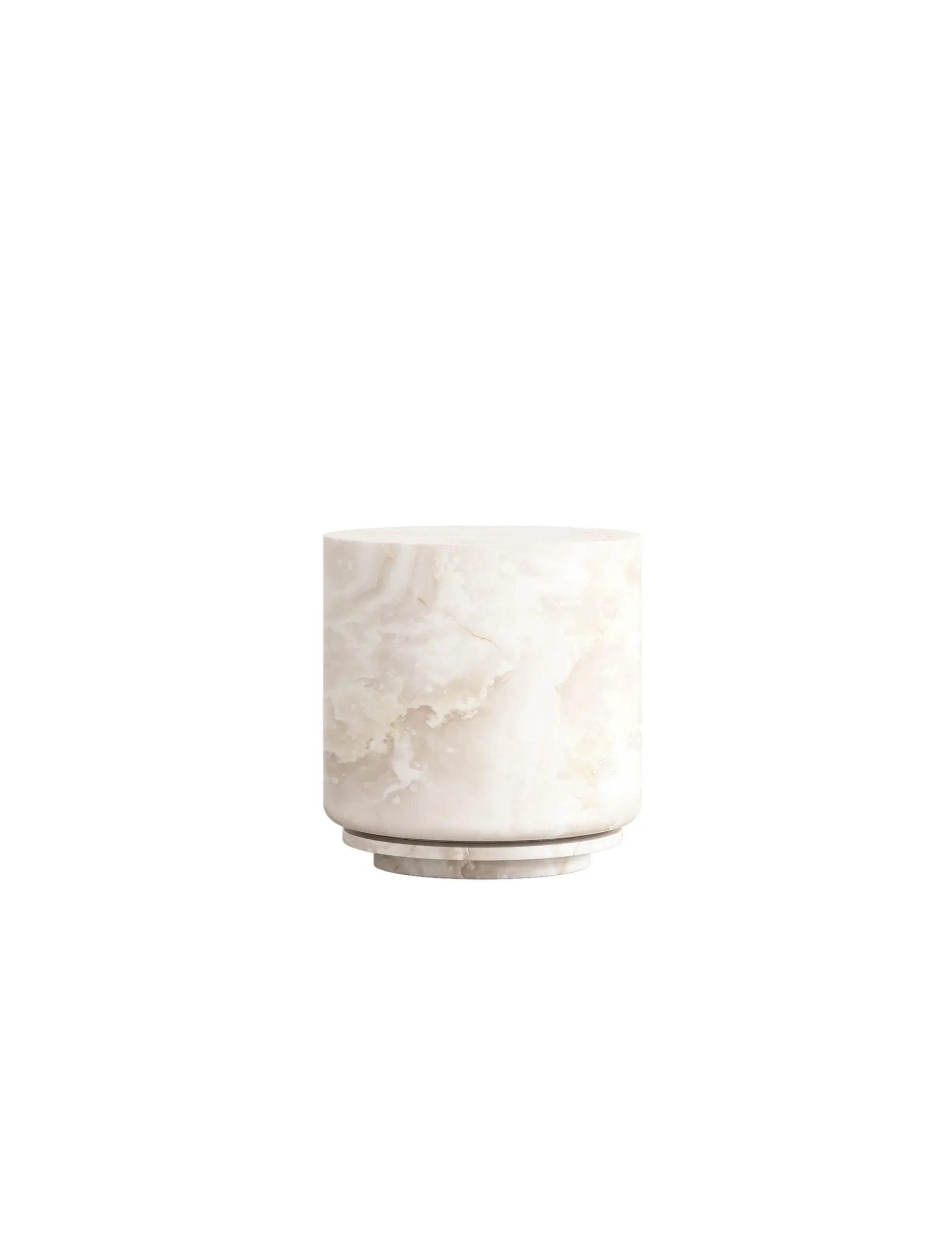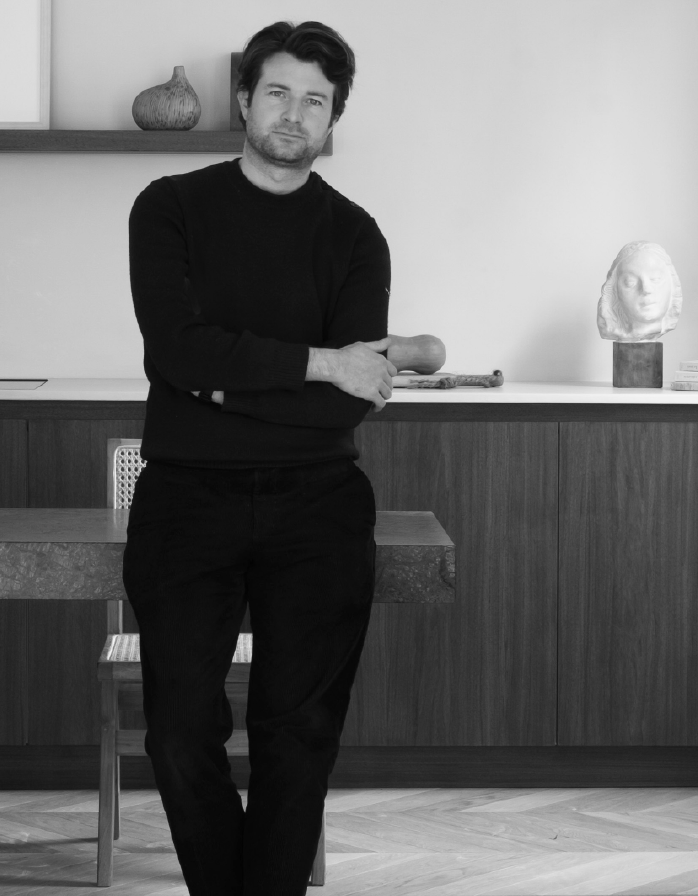BY MARTIN MASSÉ
LIMITED EDITION 12
SIGNED, SERIAL NUMBER AND CERTIFICATE OF AUTHENTICITY
IPPICO II COLLECTION
YEAR 2025
TRAVERTINE AND ZIRICOTE WOOD, JADE OR WHITE ONYX
| IN | H | 20.4 | W | 13.7 | D | 19.6 | ||||
| CM | H | 52 | W | 35 | D | 50 |
CUSTOM SIZE OR FINISH ON REQUEST
HANDCRAFTED IN FRANCE BY ATELIERS SAINT-JACQUES
BIOGRAPHY
DOWNLOAD PRODUCT INFO
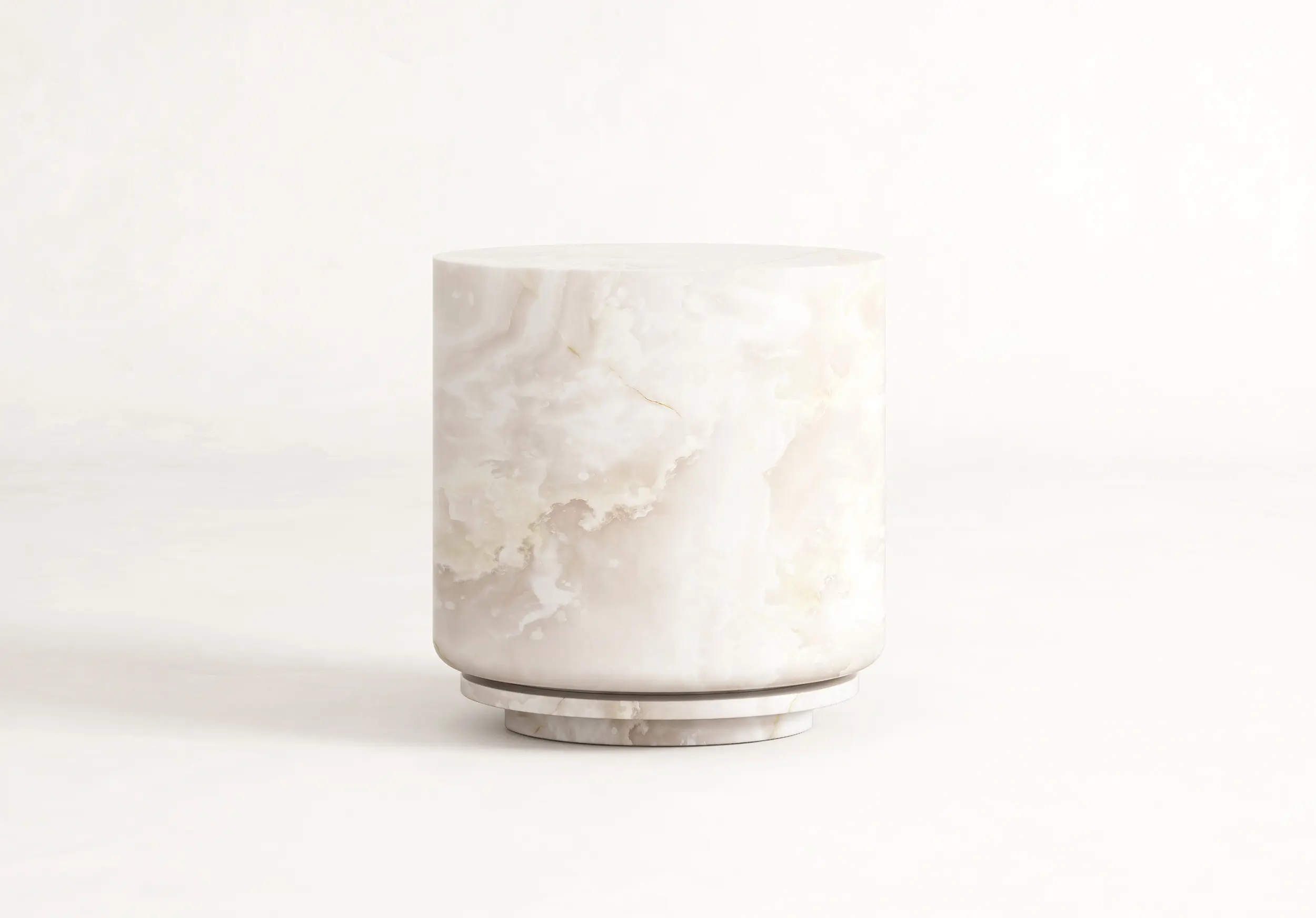
With Ippico and Ippico II, Massé reconfigures the familiar silhouette of the gymnastic pommel horse into sculptural, contemporary collectible furniture. Detached from its functional origins, the form becomes a symbolic framework, an abstracted referent guiding a series of fifteen works that blur the boundaries between furniture, architecture, and conceptual art
With A limited grammar of cylinders, in wood, stone, or leather, serving as both support and structure, the works cease to be mere utilitarian pieces and become silent beings—totemic figures, even—imbued with an animal-like softness. These elements evoke a delightful diversity of Interpretation from the image of a seated sheep to a resting horse standing firmly on its legs. Each work flirts with figuration, offering faint traces of living forms without ever crossing into the literal
the series pays homage to François-Xavier Lalanne’s iconic moutons, whimsical creatures that bridged sculpture and domesticity. But where Lalanne embraced a playful surrealism and a baroque tactility—soft fleece, rounded forms—Massé’s approach is sharper, more austere. His language is reduced, geometric, and rigorously abstracted. If Lalanne’s sheep seemed to wander into the living room, blurring the line between décor and fantasy, Massé’s works remain immobile, grounded, and intentional. They do not mimic nature, but rather reconstruct its posture in minimalist terms
In Ippico II, the introduction of vegetable-tanned leather refines this narrative further. Suggesting equestrian saddlery, the material adds a new layer of tactile and symbolic resonance, reinforcing the connection to the body and to ritualized movement. Despite these allusions, the works remain fundamentally abstract—pared down to their essential elements, free of pastiche, and aligned with Massé’s broader sculptural ethos
In limited editions of twelve and handcrafted in France through close collaboration with master cabinetmakers and stoneworkers, the series affirms Martin Massé’s capacity to transform archetypal references into objects of sculptural clarity—imbued with stillness, strangeness, and a subtle intensity that redefines the expressive potential of design
